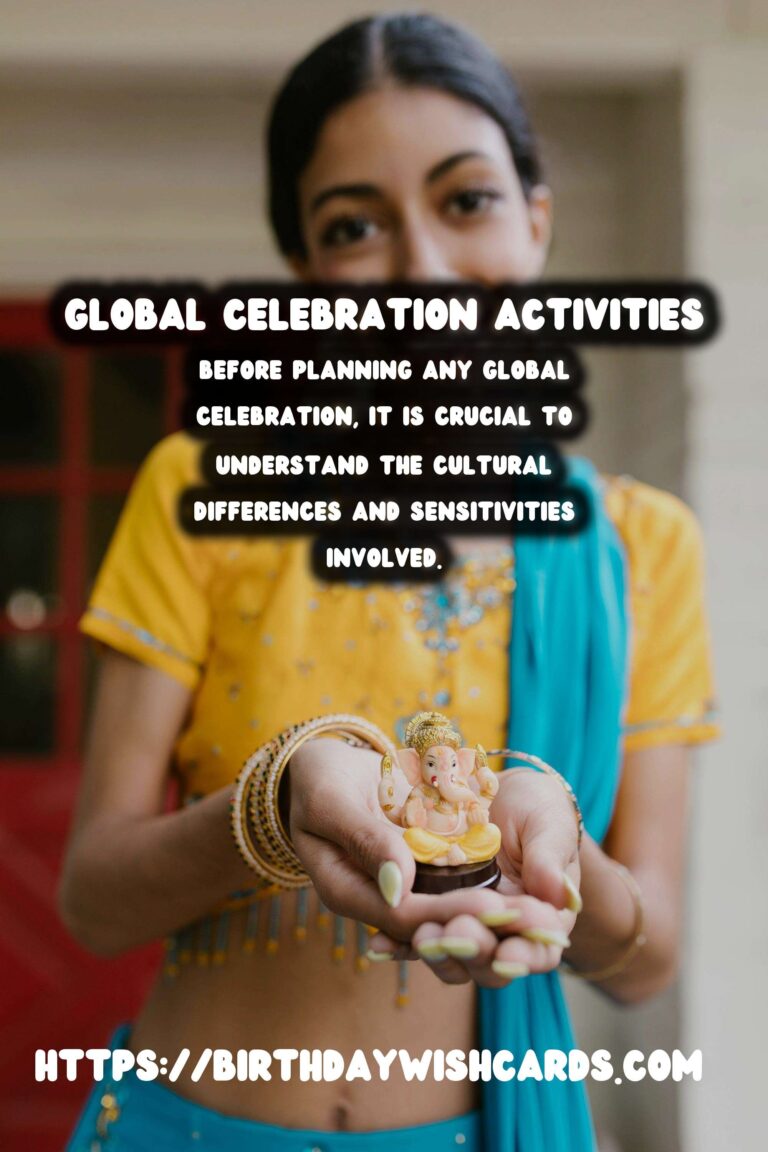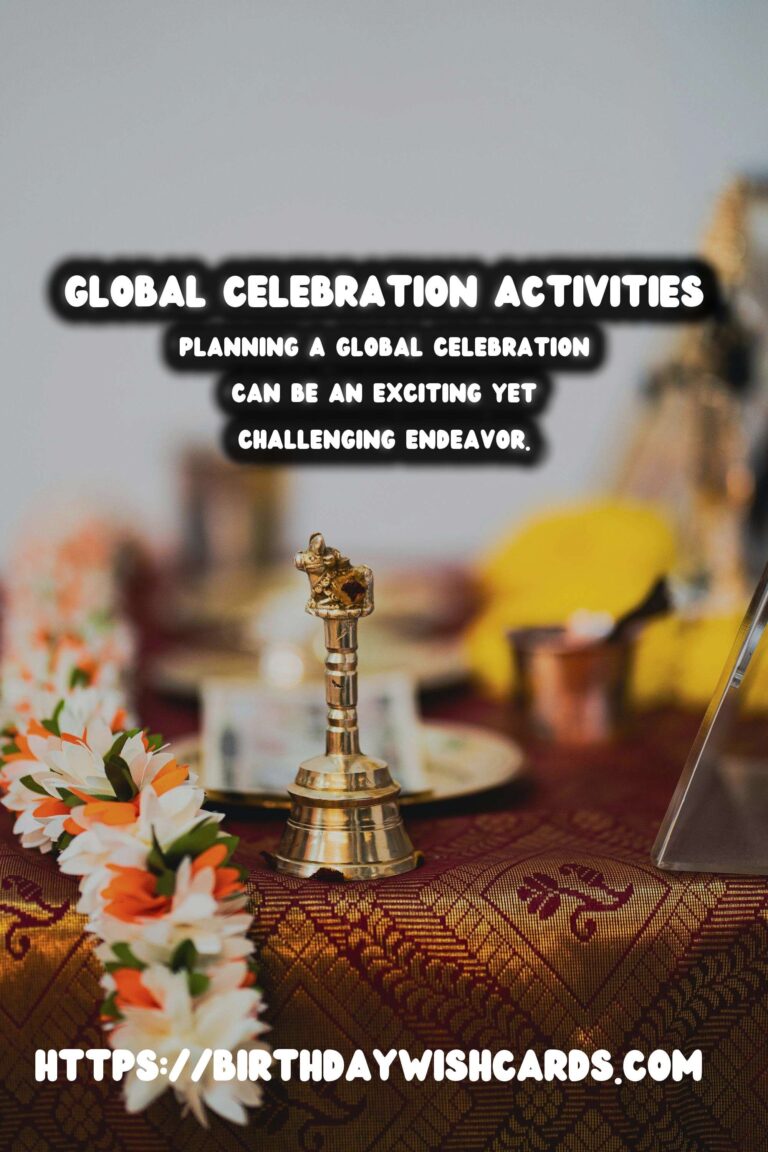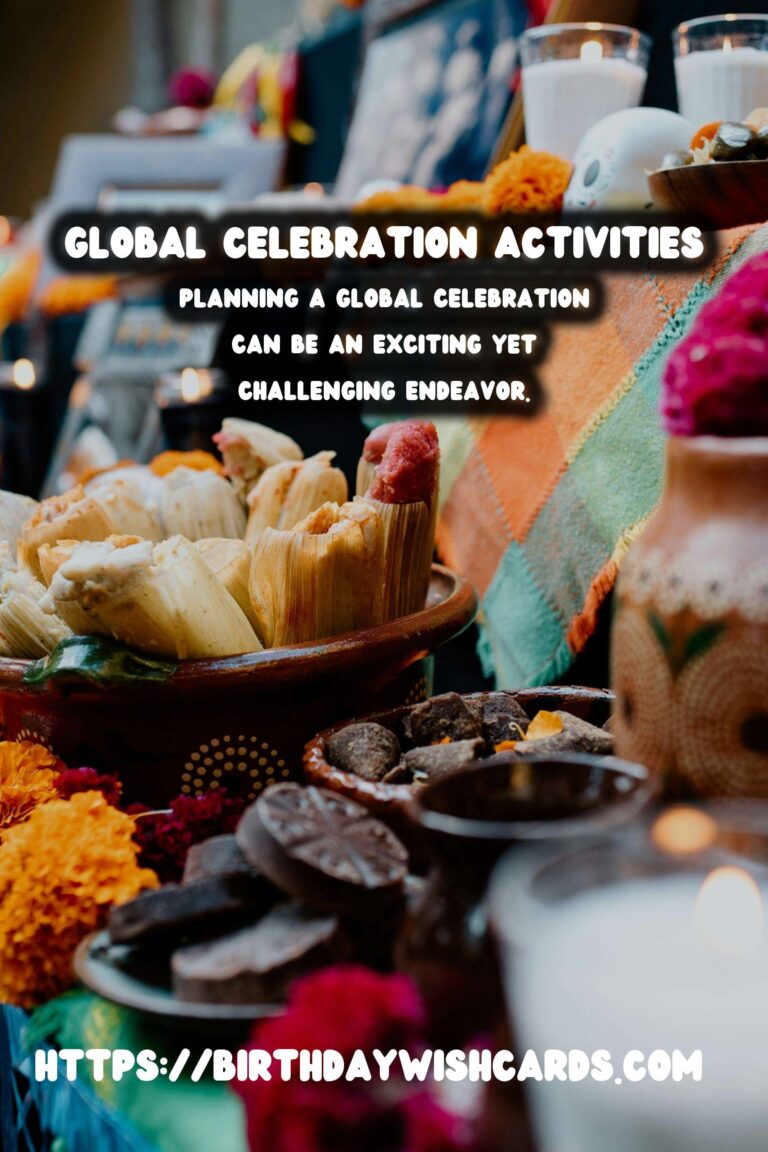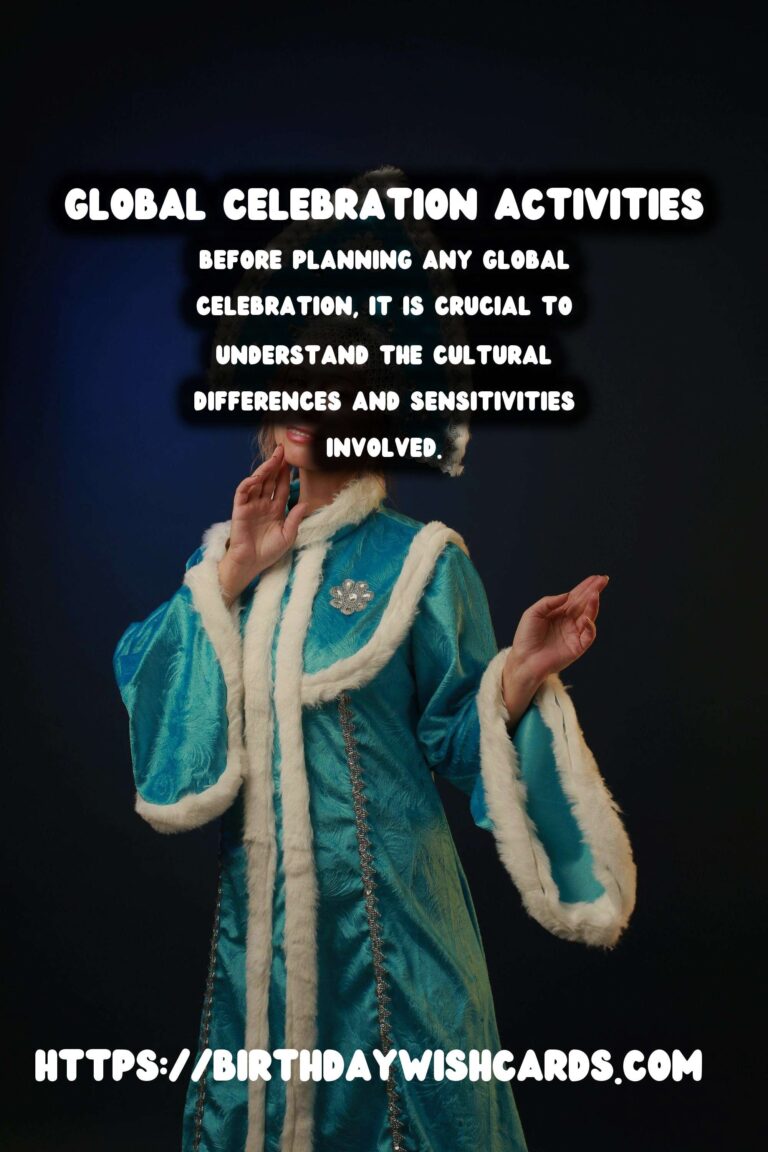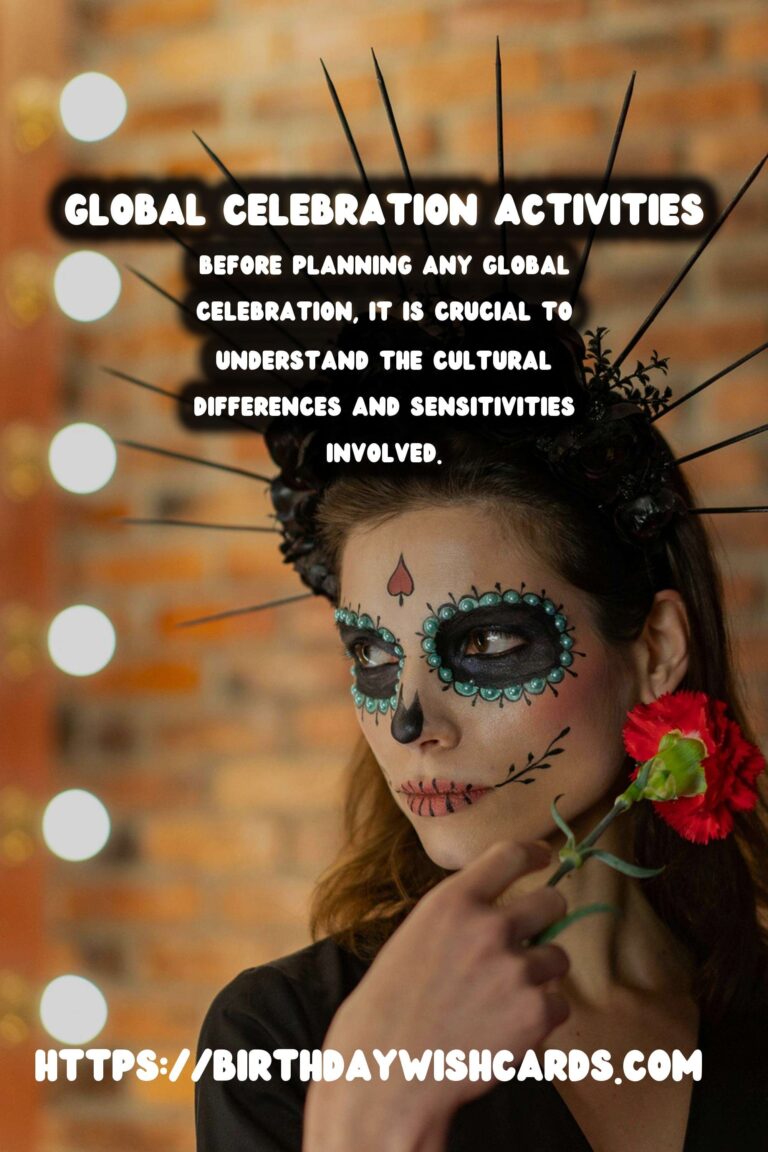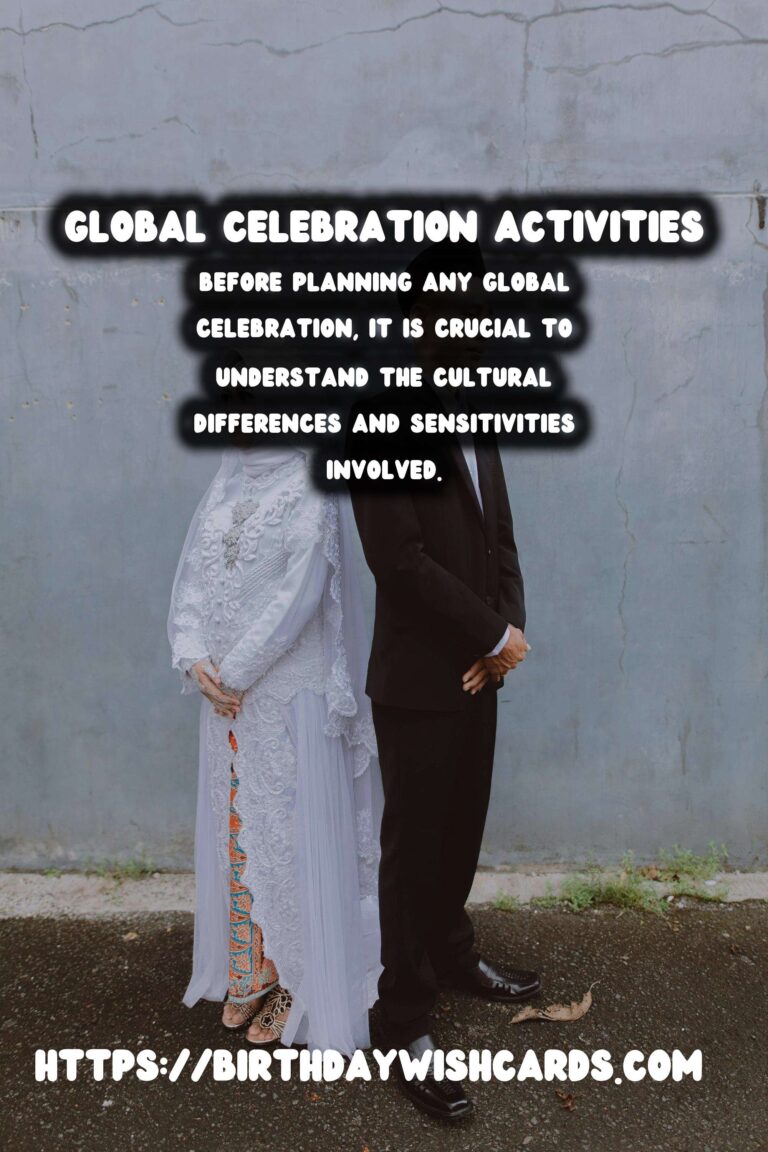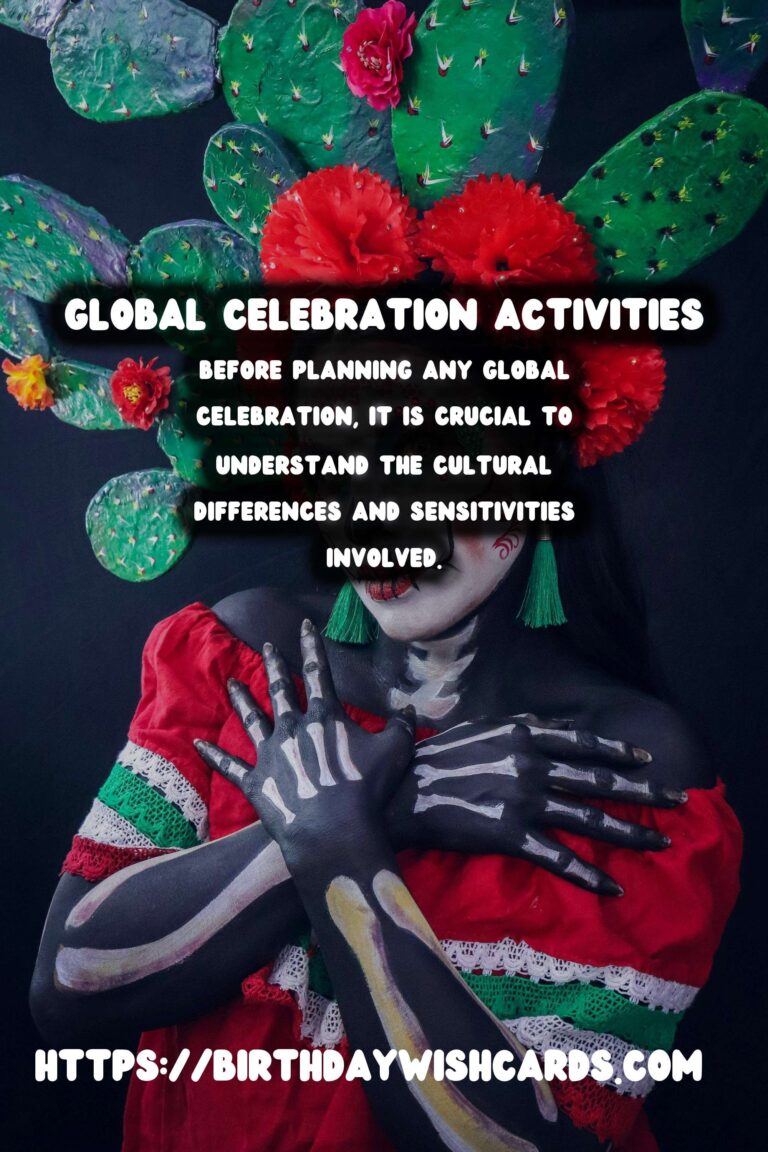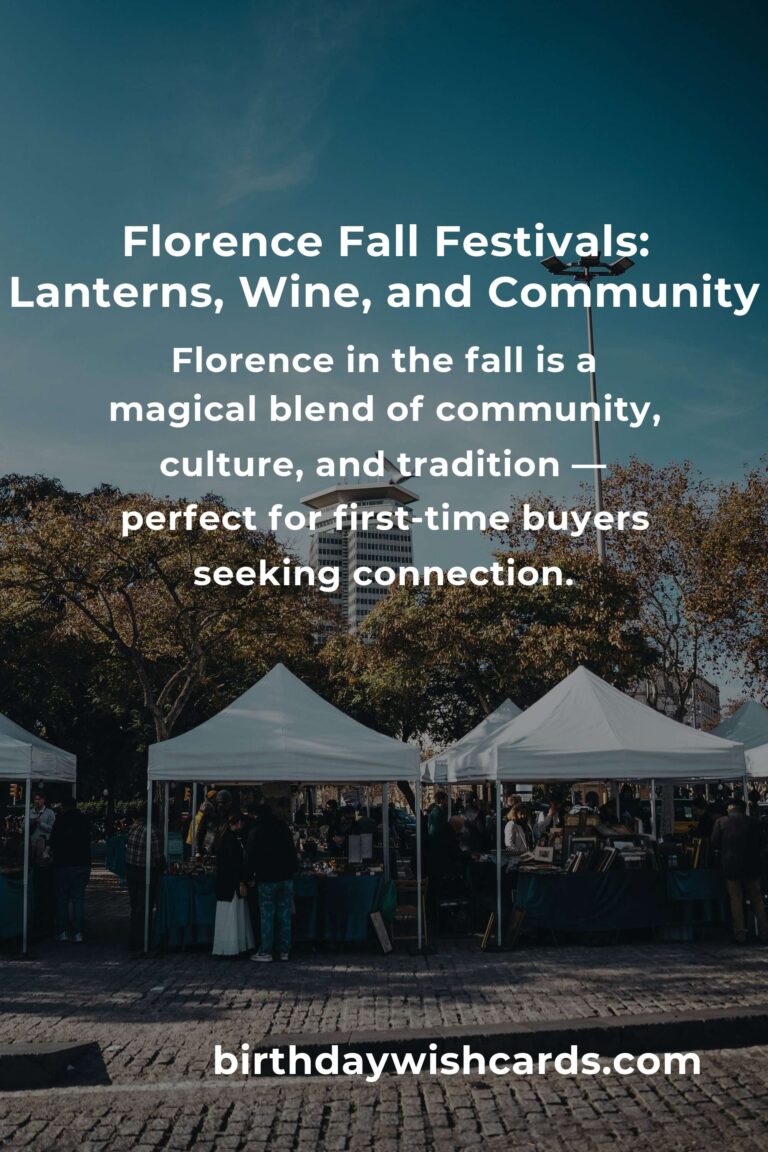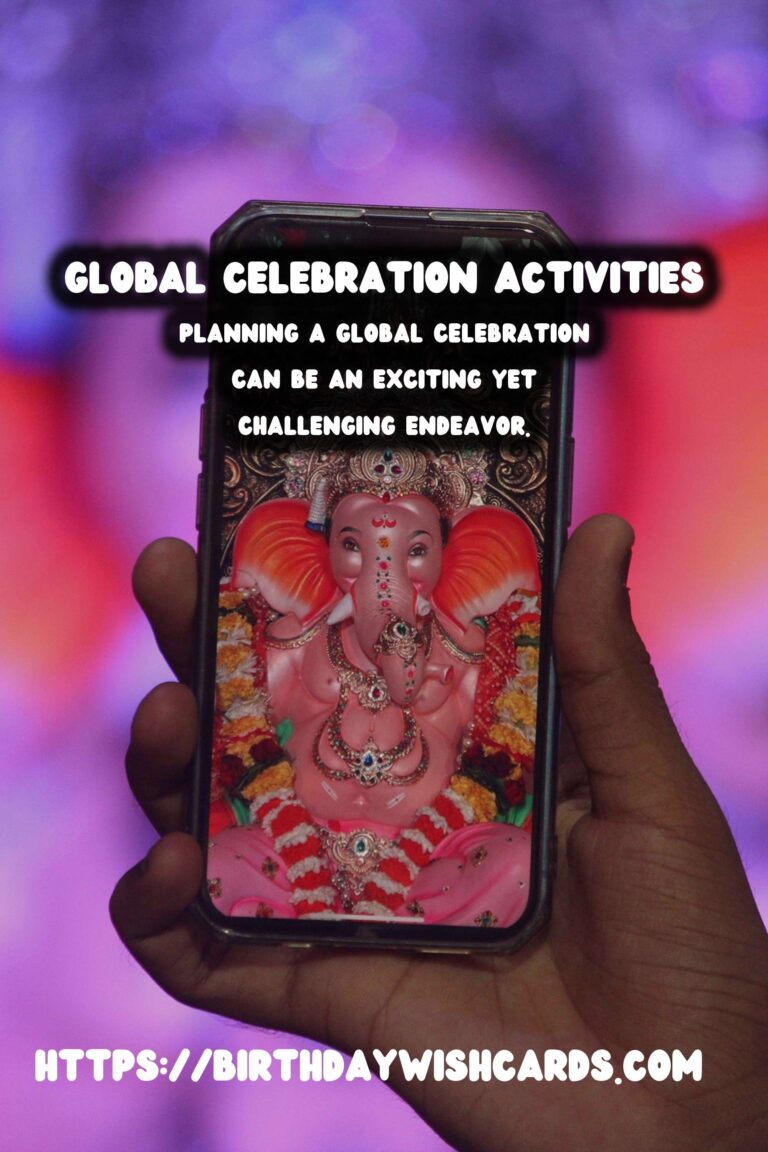
Planning a global celebration can be an exciting yet challenging endeavor. Whether you are organizing an event to commemorate a significant cultural milestone or simply wish to bring people together in a festive atmosphere, there are several key factors to consider. This article will provide you with practical ways to plan successful global celebration ideas that resonate with audiences everywhere.
Understanding Cultural Sensitivity
Before planning any global celebration, it is crucial to understand the cultural differences and sensitivities involved. Each culture has its own unique traditions, values, and customs associated with celebrations. Misunderstanding these aspects can lead to unintentional offense or culturally inappropriate themes.
To ensure cultural sensitivity, take the time to research the cultures you aim to represent. Engage with local community members, historians, and cultural experts to gain insights. By doing so, you can design an inclusive celebration that honors multiple traditions and encourages participation from diverse groups.
Setting Clear Objectives
Establishing clear objectives is essential for a successful global celebration. What do you want to achieve? Is it to raise awareness about cultural diversity, foster community spirit, or simply entertain? Clear objectives will help guide your planning process and keep your team focused.
Consider utilizing the SMART criteria—Specific, Measurable, Achievable, Relevant, and Time-bound—to define your goals. This framework provides a foundation for creating a well-structured plan and measuring your event’s success post-celebration.
Choosing a Theme
A thoughtfully chosen theme can greatly enhance the appeal of your global celebration. Themes can reflect cultural heritage, significant events, or universal concepts like peace, unity, or love. When choosing a theme, aim for something that resonates with various cultures while still promoting a sense of belonging.
For instance, a theme like ‘Unity in Diversity’ can effectively highlight the beauty of various traditions while encouraging cross-cultural exchanges. Ensuring your theme is engaging and visually appealing will intrigue attendees and promote participation.
Creating an Inclusive Environment
Inclusion is critical when organizing a global celebration. Ensure that everyone feels welcome and valued, regardless of their background or beliefs. To create an inclusive environment, consider accessibility for individuals with disabilities, language options, and dietary accommodations.
Offering multilingual resources such as flyers, signage, and announcements can make a considerable difference. Also, involving representatives from various cultural backgrounds in the planning process can provide valuable perspectives on how to make the celebration more inclusive.
Selecting the Right Venue
The choice of venue can significantly impact the success of your celebration. Choose a location that is easily accessible and has the capacity to accommodate your expected audience. Public parks, community centers, or cultural institutions can be excellent choices. Ensure the venue aligns with your theme and provides the facilities needed to execute various activities.
Moreover, consider the layout and flow of the venue. Open spaces promote community interaction, while designated areas for specific activities can ensure that guests can easily transition from one experience to another.
Engaging Activities and Entertainment
A vital aspect of planning a global celebration is the selection of activities and entertainment that will attract attendees. Consider incorporating cultural performances, workshops, art exhibits, food tasting, and interactive games representative of various cultures.
Work with local artists, musicians, and cultural organizations to showcase authentic performances. This not only enriches the experience but also supports local talent and fosters a spirit of collaboration.
Effective Marketing Strategies
To ensure a high turnout at your global celebration, effective marketing strategies are essential. Utilize social media platforms, community websites, and local media outlets to promote your event. Utilize engaging content that reflects the essence of the celebration to capture the interest of potential attendees.
Consider creating a promotional video that showcases highlights of your planned activities and engages viewers emotionally. Promotional graphics featuring vibrant imagery and cultural symbols can also effectively communicate the spirit of your celebration.
Collaboration and Partnerships
Collaborating with local organizations, businesses, and cultural groups can amplify your efforts and enhance the overall experience. Partnerships can provide additional resources, volunteers, and access to a larger audience.
Forming alliances with organizations that share similar values can improve the credibility of your event and create lasting relationships that benefit future celebrations. Be open to feedback and discussions with your partners throughout the planning process to ensure mutual goals are met.
Managing Logistics
A successful global celebration requires meticulous planning regarding logistics. This includes securing permits, arranging transportation, setting up equipment, and ensuring safety measures are in place. Create a checklist to keep track of all logistical elements to ensure nothing is overlooked.
Designate a reliable team responsible for various aspects of logistics, such as catering, sound and lighting, and security. Consistent communication and understanding of roles among team members will contribute to a seamless execution of the event.
Feedback and Post-Event Evaluation
After the celebration, it is essential to gather feedback from attendees and stakeholders. This data will help you assess the event’s success and identify areas for improvement. Consider conducting surveys, interviews, or informal discussions to gather valuable insights.
Analyze both quantitative and qualitative data to get a clearer picture of attendees’ experiences. This information will not only benefit future events but also foster a culture of continuous improvement.
Conclusion
Planning a global celebration requires thoughtful consideration and attention to detail. From understanding cultural sensitivities to effective marketing strategies, each element contributes to the overall success of your event. By following these practical steps, you can create an engaging and memorable celebration that unites people from diverse backgrounds, celebrates cultural richness, and fosters a sense of community.
Planning a global celebration can be an exciting yet challenging endeavor. Before planning any global celebration, it is crucial to understand the cultural differences and sensitivities involved. 
